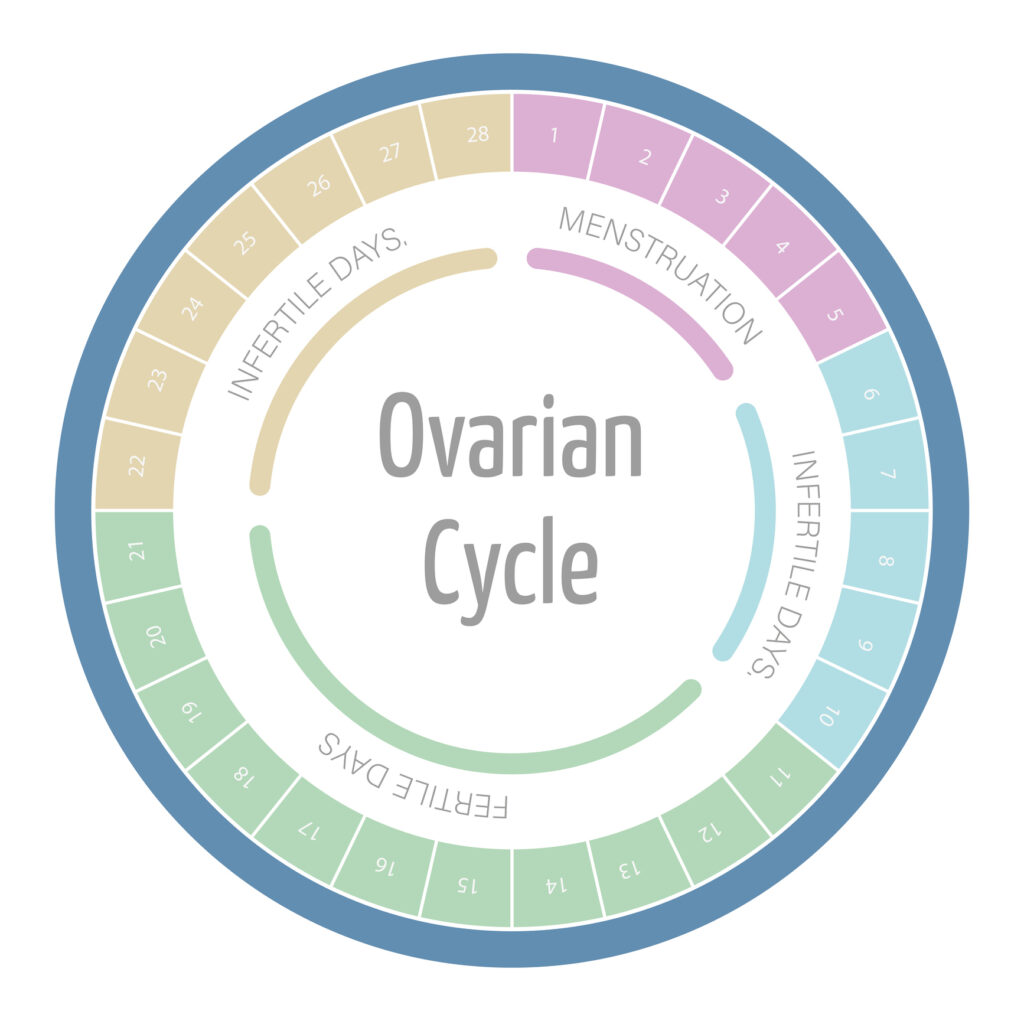Learn effective tips and techniques to increase your chances of getting pregnant quickly.
How to Get Pregnant Quickly
Trying to conceive can be an exciting and joyous journey for many couples. But it can also be challenging and frustrating when it doesn’t happen as quickly as expected. If you’re looking for ways to increase your chances of getting pregnant quickly, this article is for you. We’ll explore various factors that can influence fertility and offer practical tips to help you on your path to parenthood.
Understanding Your Menstrual Cycle
Your menstrual cycle is a complex and intricate process that involves a series of hormonal changes in your body. It plays a crucial role in determining your fertile window – the days in which you’re most likely to conceive. On average, a menstrual cycle lasts around 28 days, but this can vary from woman to woman due to various factors such as stress, diet, and overall health. It’s important to track your cycle diligently to identify your ovulation period accurately and maximize your chances of conception.

During your menstrual cycle, several key events take place, starting with the shedding of the uterine lining during menstruation. Following this, your body prepares for ovulation, where an egg is released from the ovary. If the egg is fertilized by sperm during this time, it may implant in the uterus and result in pregnancy. Understanding the different phases of your menstrual cycle can empower you to take control of your reproductive health.
The Importance of Timing
Timing is everything when it comes to getting pregnant. The fertile window usually occurs five days before and one day after ovulation. During this time, the chances of fertilization are at their highest as sperm can survive in the female reproductive tract for several days. By understanding your menstrual cycle and tracking ovulation accurately, you can pinpoint the best time to try to conceive and increase your likelihood of success.
Factors such as age, stress levels, and underlying health conditions can also impact the regularity and predictability of your menstrual cycle. It’s essential to listen to your body, pay attention to any changes or irregularities, and seek guidance from a healthcare provider if needed. By taking a proactive approach to understanding your menstrual cycle, you can make informed decisions about your reproductive goals and overall well-being.
Tracking Ovulation: Key to Conception
There are several methods to track ovulation, each offering unique insights into your body’s fertility signs. From monitoring your basal body temperature to examining cervical mucus changes and using ovulation predictor kits, these tools can help you pinpoint the most fertile days of your cycle. It’s important to remember that ovulation can vary from month to month, so consistency and patience are key when tracking your cycle.
Additionally, lifestyle factors such as diet, exercise, and sleep can also influence your menstrual cycle and ovulation. Maintaining a healthy lifestyle can support regular ovulation and overall reproductive health. By combining accurate ovulation tracking with a holistic approach to well-being, you can optimize your chances of conceiving and embark on your journey to parenthood with confidence.
Nutrition and Lifestyle Changes for Fertility
What you eat and how you live can also impact your fertility. Making certain dietary and lifestyle changes could help optimize your reproductive health.
When it comes to fertility, the impact of nutrition and lifestyle choices cannot be overstated. A well-rounded diet not only supports overall health but also plays a crucial role in reproductive function. By focusing on nutrient-dense foods and making mindful choices, you can create an environment that is conducive to conception and a healthy pregnancy.
Foods to Boost Fertility
A healthy and balanced diet can enhance your chances of conceiving. Incorporate foods rich in antioxidants, such as berries, leafy greens, and nuts. Additionally, include sources of lean protein, whole grains, and healthy fats. Stay hydrated and limit your intake of caffeine and alcohol.
A diet rich in antioxidants can help combat oxidative stress in the body, which is known to play a role in infertility. Berries, in particular, are packed with vitamins, minerals, and antioxidants that can support reproductive health. Leafy greens like spinach and kale are excellent sources of folate, a B vitamin that is essential for fetal development. Nuts provide healthy fats and protein, both of which are important for hormone production and overall reproductive function.
The Role of Exercise in Pregnancy Preparation
Maintaining a regular exercise routine can enhance fertility and overall well-being. Engaging in moderate exercise, such as brisk walking or swimming, can boost blood flow to the reproductive organs and help regulate hormone levels. However, excessive exercise can have the opposite effect, so finding the right balance is essential.

Exercise not only benefits physical health but also has a positive impact on mental well-being, which is crucial when preparing for pregnancy. By incorporating regular physical activity into your routine, you can reduce stress levels, improve sleep quality, and boost your overall mood – all of which can contribute to a healthy reproductive system.
Medical Check-ups and Preconception Tests
Before embarking on your journey to conceive, it’s crucial to consult with a healthcare professional. They can assess your overall health and identify any potential issues that may affect your fertility. This initial consultation is an important step in ensuring a healthy and successful pregnancy.
During your visit, your healthcare provider will take a detailed medical history to understand your health background better. This information will help them tailor their recommendations to suit your individual needs and circumstances. It’s essential to be open and honest during this discussion to receive the best possible care.
Necessary Medical Tests Before Conception
Your healthcare provider may recommend certain tests to evaluate your reproductive health. These may include blood tests to check hormone levels, genetic screening, and ultrasounds to assess your reproductive organs. These tests are designed to provide valuable insights into your fertility potential and overall reproductive health.
Additionally, your healthcare provider may suggest lifestyle modifications to enhance your fertility. This could involve dietary changes, exercise recommendations, and stress management techniques. By making these adjustments, you can create a more conducive environment for conception and a healthy pregnancy.
Understanding Preconception Health Care
Preconception health care involves getting your body ready for pregnancy. It may include updating immunizations, managing chronic conditions, and optimizing your overall health through lifestyle changes. Your healthcare provider can provide you with personalized guidance based on your specific needs. Taking proactive steps to address any health concerns before conceiving can improve your chances of a smooth pregnancy and a healthy baby.
Remember that preconception care is not only about the physical aspects but also about emotional well-being. Your healthcare provider can offer resources and support to help you navigate any anxieties or uncertainties you may have about starting a family. Building a strong support system early on can contribute to a positive pregnancy experience.
The Role of Sexual Intercourse in Conception
Understanding the intricacies of sexual intercourse can be helpful when trying to conceive.

When it comes to conception, sexual intercourse plays a crucial role in the journey towards parenthood. The process of fertilization begins with the release of an egg from the ovary during ovulation, which then travels down the fallopian tube. Sperm, deposited into the vagina through ejaculation during intercourse, must navigate through the cervix and into the uterus to meet the egg for fertilization to occur.
Best Positions for Getting Pregnant
Contrary to popular belief, there isn’t one specific position that guarantees pregnancy. However, certain positions, such as missionary or doggy style, may allow for deeper penetration, potentially increasing the chances of sperm reaching the cervix.
Additionally, the angle of penetration can also influence the likelihood of conception. Positions that facilitate a closer proximity between the cervix and the ejaculated sperm can enhance the chances of successful fertilization. Experimenting with different positions can not only add variety to your intimate moments but also potentially optimize the conditions for conception.
Frequency and Timing of Intercourse
Having regular intercourse every two to three days throughout your fertile window can maximize your chances of conception. It’s important not to fixate solely on the day of ovulation but rather maintain a consistent approach throughout the month.
Understanding your menstrual cycle and identifying your fertile window can help you time intercourse effectively. The fertile window typically spans a few days leading up to ovulation and the day of ovulation itself. By engaging in regular intercourse during this timeframe, you can ensure that sperm are present in the reproductive tract awaiting the release of an egg, increasing the likelihood of successful fertilization.
Common Myths and Misconceptions About Pregnancy
When it comes to pregnancy, there are countless myths and misconceptions that can lead to confusion and anxiety. Let’s explore some of the most common ones and separate fact from fiction.
One prevalent myth is the idea that consuming pineapple can induce labor. While pineapple contains an enzyme called bromelain that may soften the cervix, the amount you would need to consume for it to have any effect is unrealistic. It’s essential to rely on medically proven methods for inducing labor rather than old wives’ tales.
Debunking Pregnancy Myths
From the belief that certain sexual positions can determine the sex of the baby to myths about fertility declining after a certain age, it’s essential to separate truth from fiction. Understanding the facts can help alleviate unnecessary stress and anxiety during your journey to parenthood.
Another common misconception is that pregnant individuals should eat for two. In reality, during the first trimester, no additional calories are needed. In the second and third trimesters, only 300-500 extra calories per day are recommended. Quality of nutrition is more important than quantity, so focusing on nutrient-dense foods is key.
Facts About Fertility
Having accurate information about fertility can empower you on your path to getting pregnant quickly. Familiarize yourself with the factors that influence fertility, such as age, underlying health conditions, and lifestyle choices. This knowledge will enable you to make informed decisions and take proactive steps to optimize your chances of conception.
It’s crucial to debunk the myth that infertility is solely a female issue. In reality, male infertility contributes to approximately 40-50% of all infertility cases. Factors such as low sperm count, poor sperm motility, or abnormal sperm shape can significantly impact a couple’s ability to conceive. Seeking fertility testing for both partners is essential for a comprehensive understanding of potential obstacles.
In conclusion, getting pregnant quickly involves a combination of understanding your menstrual cycle, making healthy lifestyle choices, seeking medical advice, optimizing sexual intercourse, and dispelling common myths about fertility. Remember, each person’s fertility journey is unique, and it’s essential to be patient and kind to yourself throughout the process. With the right knowledge and approach, you can increase your chances of welcoming a little bundle of joy into your life.